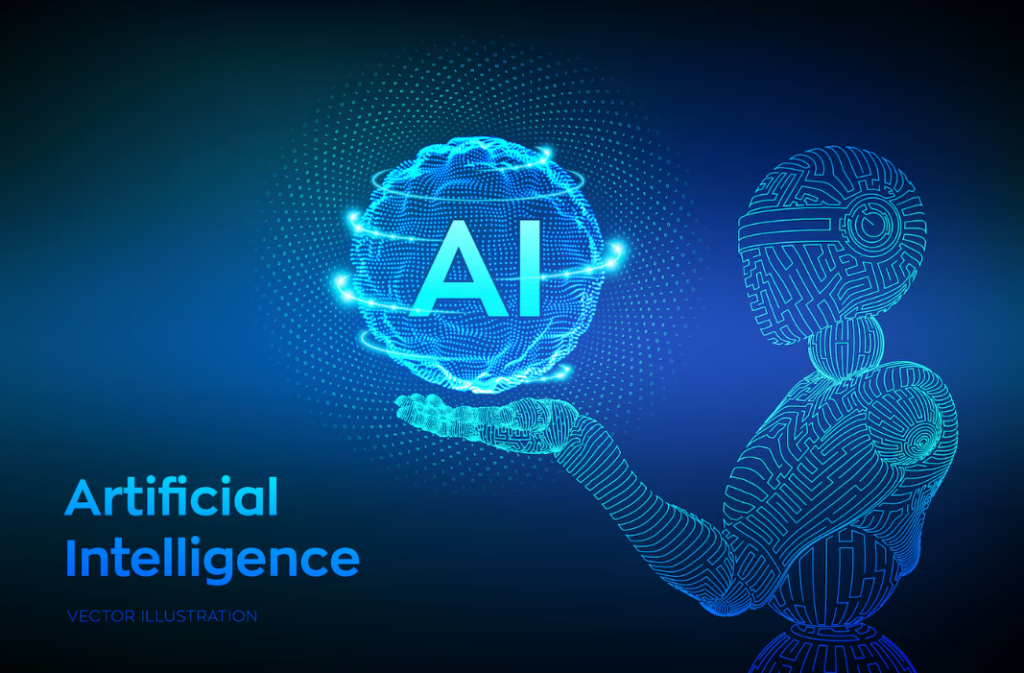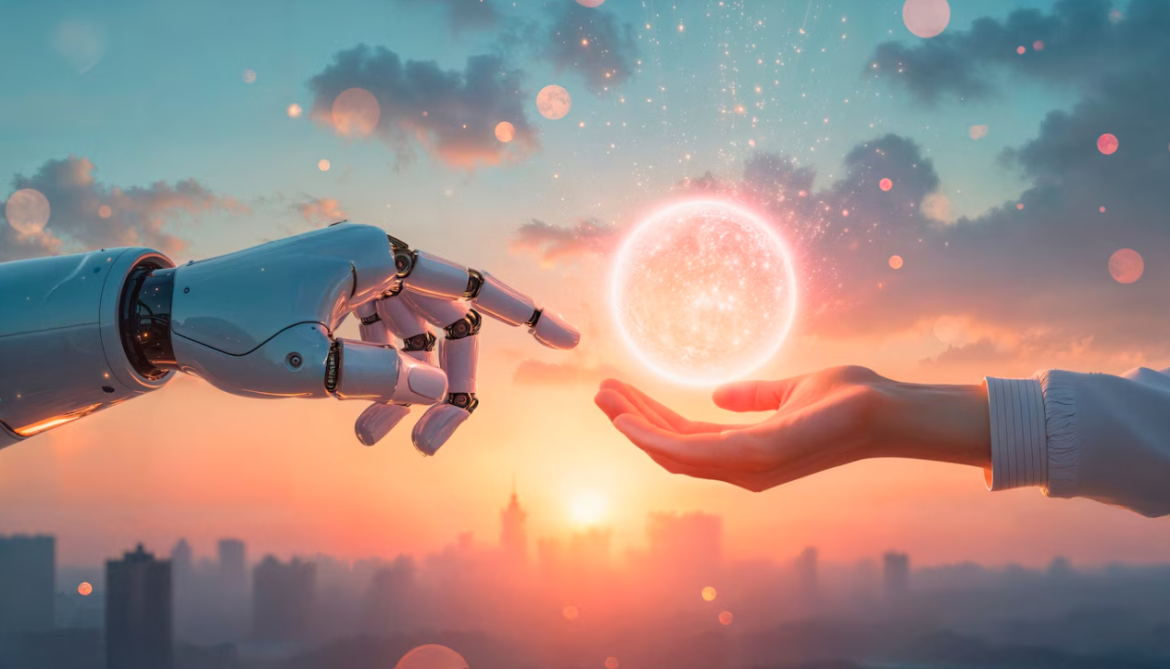Artificial Intelligence (AI) has rapidly transformed from a buzzword into one of the most defining technologies of our time. Whether it’s in our smartphones, homes, or workplaces, AI has quietly embedded itself in every corner of our daily lives. As we move forward, it’s crucial to understand what the AI future holds — not just for tech giants and businesses, but for every individual navigating this increasingly digital world.
The 21st century has witnessed technological leaps at a pace unmatched in history, and AI stands at the heart of this revolution. From automating simple tasks to predicting diseases, AI is not only redefining productivity but also reshaping the very fabric of society. As we look ahead, the question is no longer “if” AI will be a part of our lives, but rather “how” and “to what extent?”
The Evolution and Acceleration of AI
AI is no longer limited to theoretical discussions or experimental labs. It has become a tangible force, driving real-world applications. From healthcare and finance to transportation and customer service, AI is offering solutions that are faster, smarter, and more efficient than traditional methods.
One of the most promising advancements lies in natural language processing (NLP), the very technology that powers chatbots, voice assistants, and even tools like this one. NLP allows machines to understand and respond to human language, enabling seamless communication between humans and computers. Meanwhile, machine learning (ML) and deep learning are allowing AI systems to analyze massive datasets, learn patterns, and make decisions with little to no human intervention.
But what’s truly remarkable is the rate of innovation. Companies are investing billions into AI research, while governments are crafting national AI strategies to stay competitive. All signs point toward a future that’s deeply intertwined with artificial intelligence.
AI in Real Life: Transforming Industries
One of the clearest indicators of the growing influence of AI is its integration into diverse industries. In healthcare, AI is helping doctors diagnose diseases more accurately and faster than ever before. Algorithms can now detect anomalies in X-rays, suggest treatment plans, and even predict patient outcomes based on historical data.
In the business world, AI is revolutionizing operations. From chatbots offering customer support 24/7 to algorithms optimizing supply chains, the potential for increased efficiency and cost reduction is immense.
Perhaps most importantly, the future of artificial intelligence is ushering in entirely new business models. Autonomous vehicles, AI-powered legal assistants, and intelligent robotic process automation are just a few examples of how industries are evolving to embrace this transformative technology.

The Future of AI in Education
Among the sectors being transformed, education stands out as a key area where AI is beginning to show immense promise. Personalized learning platforms, smart tutors, and predictive analytics are redefining the student experience. As AI tools become more advanced, they can adapt to each learner’s pace, strengths, and weaknesses, creating an environment where education is truly tailored to the individual.
The future of AI in education is not limited to students alone. Educators are benefiting as well, using AI-powered tools to streamline administrative tasks, develop dynamic curriculums, and gain insights into classroom performance. Institutions are exploring ways to use data-driven models to enhance learning outcomes, reduce dropout rates, and foster inclusive education.
As this trend grows, the AI future in education will likely move from supplementary roles to central positions within the academic ecosystem, making learning more engaging, accessible, and effective.
Ethical Considerations and Challenges
While the potential of AI is exciting, it comes with its own set of challenges. Issues such as bias in algorithms, data privacy, job displacement, and the ethical use of AI are ongoing concerns that cannot be ignored. As AI continues to evolve, so too must our frameworks for accountability and governance.
The debate around ethical AI is gaining momentum, especially as systems make more autonomous decisions. Transparency in algorithms, inclusivity in datasets, and regulations to protect human rights will be vital in ensuring that the future of artificial intelligence serves everyone, not just a select few.
What’s Next for the AI Future?
It’s clear that we are on the cusp of a new era — one where AI becomes more than just a helpful tool and evolves into a partner in progress. From transforming how we work and learn to how we connect with the world around us, AI is not just part of the future — it is the future.
We can expect innovations like AI-generated content, hyper-personalized services, and even advancements in human-machine symbiosis. As quantum computing matures, AI systems will gain even more processing power, allowing for breakthroughs we can hardly imagine today.
Yet, amidst all the innovation, it’s crucial to keep humans at the center. AI should amplify human potential, not replace it. With thoughtful development and responsible use, we can shape an AI future that is inclusive, ethical, and truly transformative.
Conclusion
The road ahead is filled with possibilities. As AI continues to evolve, its impact will be felt across every domain — from classrooms and hospitals to homes and highways. The AI future is not just about smarter machines; it’s about creating a smarter society.
By understanding the future of artificial intelligence and embracing the changes it brings — especially in sectors like education — we can build a world that is more efficient, more equitable, and more inspired. Whether you’re a student, a business leader, or a curious mind, now is the time to prepare for what lies ahead in the exciting journey of AI.
Artificial Intelligence (AI) has rapidly transformed from a buzzword into one of the most defining technologies of our time. Whether it’s in our smartphones, homes, or workplaces, AI has quietly embedded itself in every corner of our daily lives. As we move forward, it’s crucial to understand what the AI future holds — not just for tech giants and businesses, but for every individual navigating this increasingly digital world.
The 21st century has witnessed technological leaps at a pace unmatched in history, and AI stands at the heart of this revolution. From automating simple tasks to predicting diseases, AI is not only redefining productivity but also reshaping the very fabric of society. As we look ahead, the question is no longer “if” AI will be a part of our lives, but rather “how” and “to what extent?”
The Evolution and Acceleration of AI
AI is no longer limited to theoretical discussions or experimental labs. It has become a tangible force, driving real-world applications. From healthcare and finance to transportation and customer service, AI is offering solutions that are faster, smarter, and more efficient than traditional methods.
One of the most promising advancements lies in natural language processing (NLP), the very technology that powers chatbots, voice assistants, and even tools like this one. NLP allows machines to understand and respond to human language, enabling seamless communication between humans and computers. Meanwhile, machine learning (ML) and deep learning are allowing AI systems to analyze massive datasets, learn patterns, and make decisions with little to no human intervention.
But what’s truly remarkable is the rate of innovation. Companies are investing billions into AI research, while governments are crafting national AI strategies to stay competitive. All signs point toward a future that’s deeply intertwined with artificial intelligence.
AI in Real Life: Transforming Industries
One of the clearest indicators of the growing influence of AI is its integration into diverse industries. In healthcare, AI is helping doctors diagnose diseases more accurately and faster than ever before. Algorithms can now detect anomalies in X-rays, suggest treatment plans, and even predict patient outcomes based on historical data.
In the business world, AI is revolutionizing operations. From chatbots offering customer support 24/7 to algorithms optimizing supply chains, the potential for increased efficiency and cost reduction is immense.
Perhaps most importantly, the future of artificial intelligence is ushering in entirely new business models. Autonomous vehicles, AI-powered legal assistants, and intelligent robotic process automation are just a few examples of how industries are evolving to embrace this transformative technology.
The Future of AI in Education
Among the sectors being transformed, education stands out as a key area where AI is beginning to show immense promise. Personalized learning platforms, smart tutors, and predictive analytics are redefining the student experience. As AI tools become more advanced, they can adapt to each learner’s pace, strengths, and weaknesses, creating an environment where education is truly tailored to the individual.
The future of AI in education is not limited to students alone. Educators are benefiting as well, using AI-powered tools to streamline administrative tasks, develop dynamic curriculums, and gain insights into classroom performance. Institutions are exploring ways to use data-driven models to enhance learning outcomes, reduce dropout rates, and foster inclusive education.
As this trend grows, the AI future in education will likely move from supplementary roles to central positions within the academic ecosystem, making learning more engaging, accessible, and effective.
Ethical Considerations and Challenges
While the potential of AI is exciting, it comes with its own set of challenges. Issues such as bias in algorithms, data privacy, job displacement, and the ethical use of AI are ongoing concerns that cannot be ignored. As AI continues to evolve, so too must our frameworks for accountability and governance.
The debate around ethical AI is gaining momentum, especially as systems make more autonomous decisions. Transparency in algorithms, inclusivity in datasets, and regulations to protect human rights will be vital in ensuring that the future of artificial intelligence serves everyone, not just a select few.
What’s Next for the AI Future?
It’s clear that we are on the cusp of a new era — one where AI becomes more than just a helpful tool and evolves into a partner in progress. From transforming how we work and learn to how we connect with the world around us, AI is not just part of the future — it is the future.
We can expect innovations like AI-generated content, hyper-personalized services, and even advancements in human-machine symbiosis. As quantum computing matures, AI systems will gain even more processing power, allowing for breakthroughs we can hardly imagine today.
Yet, amidst all the innovation, it’s crucial to keep humans at the center. AI should amplify human potential, not replace it. With thoughtful development and responsible use, we can shape an AI future that is inclusive, ethical, and truly transformative.
Conclusion
The road ahead is filled with possibilities. As AI continues to evolve, its impact will be felt across every domain — from classrooms and hospitals to homes and highways. The AI future is not just about smarter machines; it’s about creating a smarter society.
By understanding the future of artificial intelligence and embracing the changes it brings — especially in sectors like education — we can build a world that is more efficient, more equitable, and more inspired. Whether you’re a student, a business leader, or a curious mind, now is the time to prepare for what lies ahead in the exciting journey of AI.

